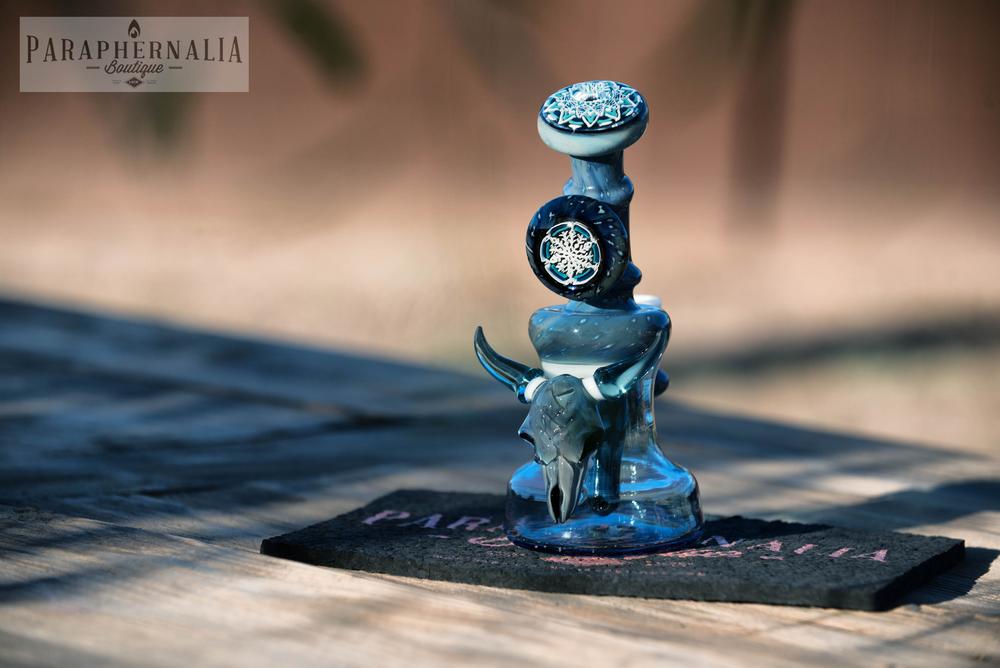Phoenix is home to one of the longest-lasting head shops to ever exist in Arizona. Hailing from the mid 1970s, Paraphernalia Boutique has managed to keep its doors open for almost 50 years despite turbulent times brought on through the harsh side effects of prohibition.
The store was initially brought into being through Barbara Zevits in 1977 after she moved to Phoenix from New Jersey. She purchased the store from its original owners and started Paraphernalia Boutique about a year after her move. In 2012, she brought her nephew Chris Morris onboard to help revitalize and reinvent the store before she passed in 2016.
However, through the years head shops were often under attack, and many of the stores that thrived in the 60s, 70s and 80s no longer exist. At the beginning, head shops like Paraphernalia Boutique were counterculture spaces where people could buy drug paraphernalia as well as magazines, art, jewelry, and apparel. Many people opposed the existence of head shops, saying that they were corrupting America’s youth.
“Head shops in most states are a legal, direct line to this country’s booming drug culture and, by extension, to its illegal drug industry,” reads a Christian Science Monitor article that appeared in The Arizona Republic in December 1979. These were common beliefs during the war on drugs that started back in the 1930s but became its most prominent in the late 60s and early 70s.
In fact, tensions were so high by the end of the 1970s that many states, including Arizona, banned the sale of drug paraphernalia by the late 80s. A bill was signed into law by governor Bruce Babbitt in 1982 and made it so head shop owners had to rebrand themselves entirely. Many stores closed altogether and others eliminated certain merchandise. A lot of them stopped calling themselves head shops and switched instead to smoke shops.
Arizona Revised Statutes 13-3415 made it so head shops and smoke shops could only market their products for tobacco use. They could face steep fines or be forced to close their doors for good for violating these terms. In fact, many were shut down simply for calling water pipes “bongs” or selling to people who wanted to use the products for cannabis use.

“In the past, people would slip up and say, ‘I need something for marijuana,’” Morris said. “And we would have to say, ‘Unfortunately, we don’t sell any of our products for marijuana. We can’t sell you this product because you said that. We sell our products for tobacco use only.’”
Paraphernalia Boutique, like many others, had been prohibited from selling anything marijuana-related and from using the term marijuana in-store with customers. Undercover police would go in and test these stores by using marijuana terms with the employees and if they failed, it resulted in fines or forced closures.
This has been an issue up until last year even though medical marijuana has been legal in Arizona since 2010. The sale of drug paraphernalia has been a felony since 1982, but when recreational marijuana was legalized, it gave shops like Paraphernalia Boutique the opportunity to legally advertise their merchandise as a way to use cannabis products.
Employees can now speak “more bluntly and frankly to our customers about what it is they’re looking to use,” Morris said. The language restriction being lifted makes it much easier to meet people where they are in terms of product knowledge and comfort level.
With prohibition, cannabis use became very secretive and taboo. Now that it’s legal again, everyone is taking an interest. Not just college kids and veterans, but including seniors and retirees too.
“They’re all asking me questions like, ‘Hey, what do I buy? Where do I buy it? How does it work? I’m happy to have those conversations with them,” he said. “I’m sure the industry and the culture has changed quite a bit. The products have changed quite a bit since the ‘60s and ‘70s when a lot of our veterans and seniors were (using it) back then. It’s been a long time, and I find a lot of them are interested in getting back into it.”
Removing this language barrier and actually being able to talk about these products for their intended use makes it easier to inform people on how to use cannabis safely. Employees are able to speak openly with customers about how to use the equipment and which equipment works best for which product and so on. This is something that doesn’t happen at the dispensary where people are purchasing cannabis for the first time.
That said, legalization is looking bright for head shops. Paraphernalia Boutique is seeing such an increase in traffic that they’ve just opened a second location in Glendale, and many others will begin to spring up and flourish. Further, the community of cannabis users will find itself more educated and better off from their existence. The days of the head shop counterculture movement may be on its way back — it’s just a matter of time now.

